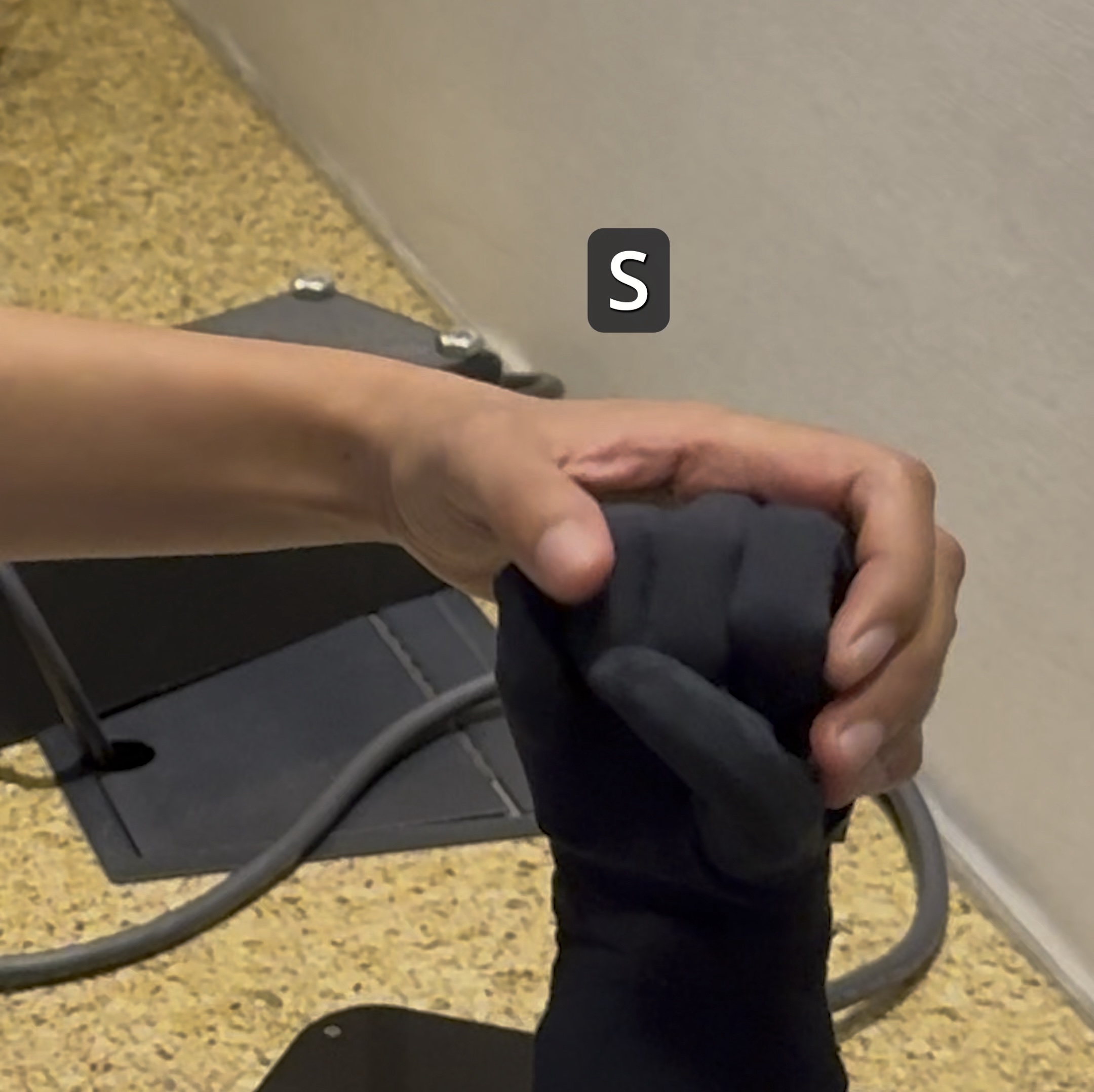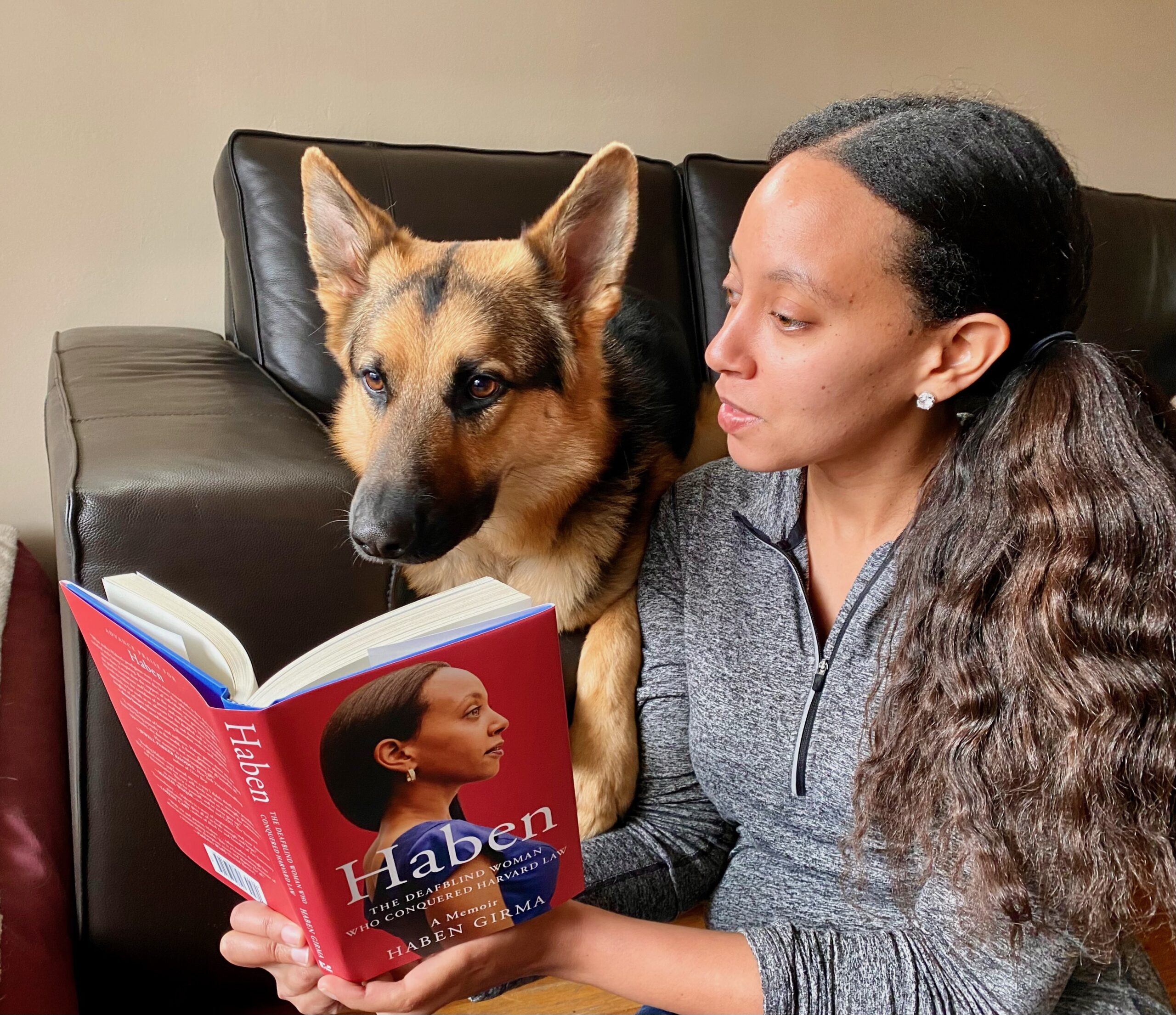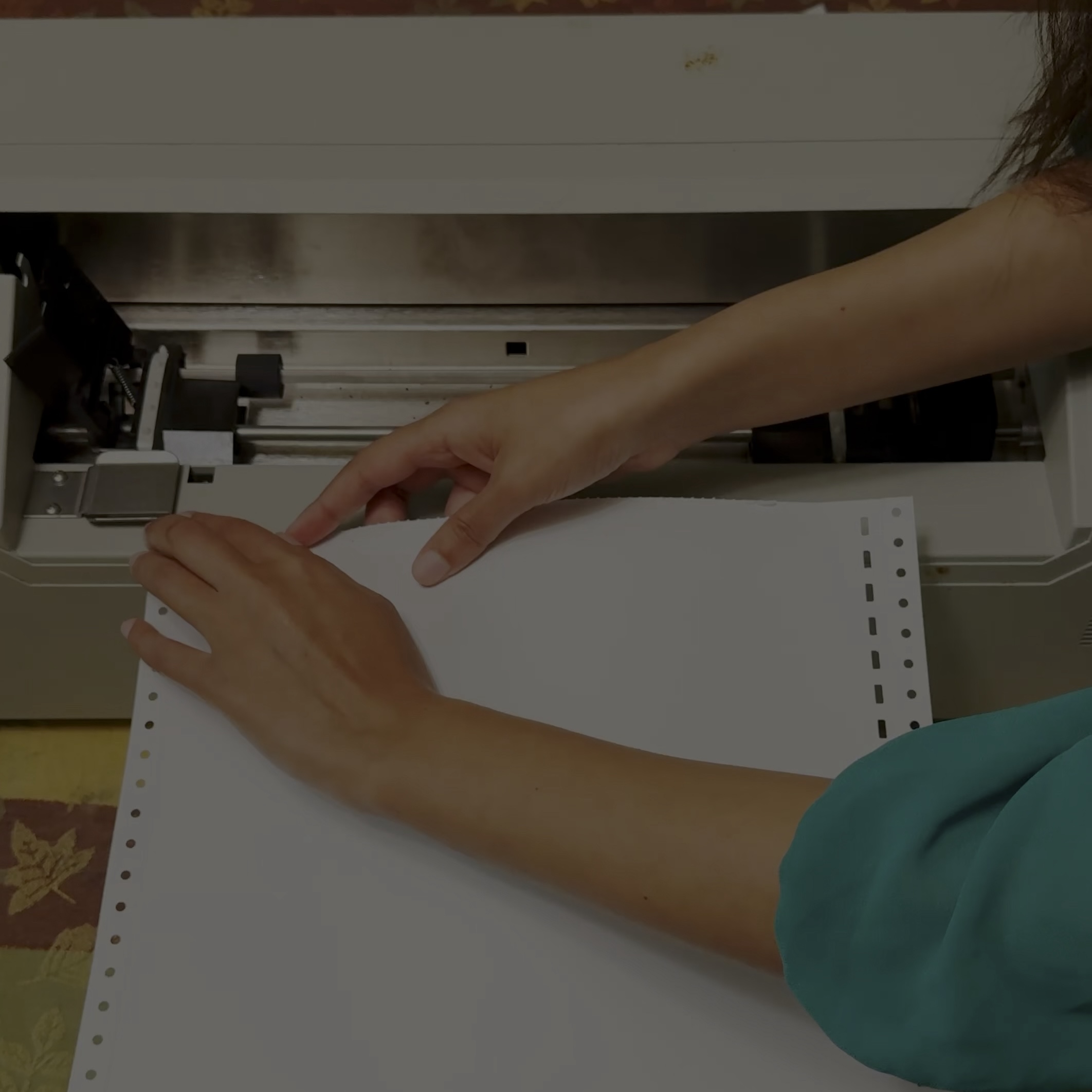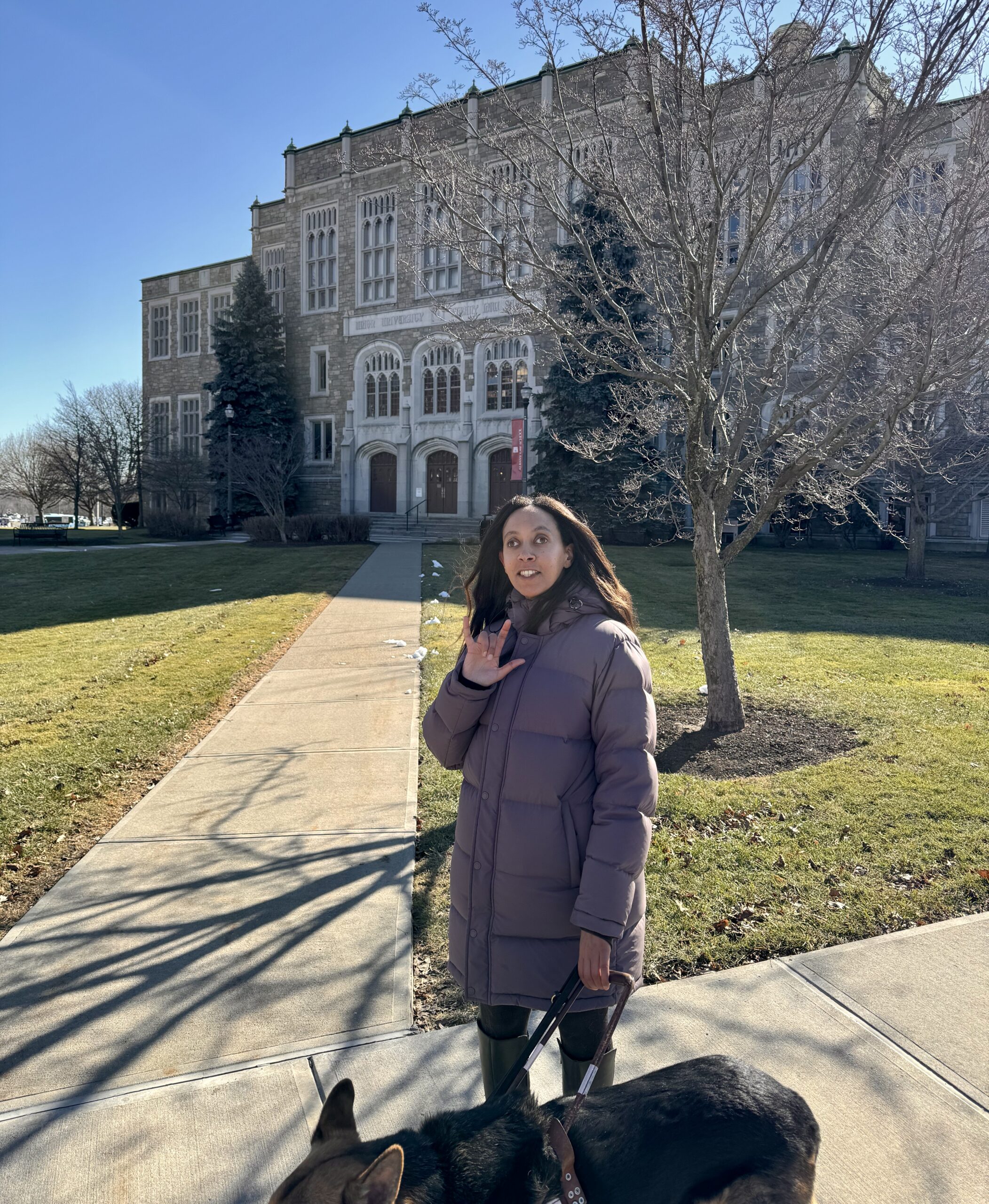My friend Lainey Feingold showed her 91-year-old dad how to turn on Live Captions on his iPhone, and now he loves how much easier phone calls are for him. How many other elders don’t know about Live Captions? Everyone, including our elders, should have communication tools that help facilitate connection. Share accessibility features with elders in your communities.
More great ideas from Lainey on how to increase accessibility for elders: iPhone Live Captions Wow My 91 Year Old Dad.
Transcript
Haben is wearing a black long-sleeve top with a small microphone attached to the collar. She is in front of a vibrant blue wall. Mylo is resting on a raised surface behind her.
Haben: Today I’m talking about an accessibility feature on the iPhone called Live Captions, and it turns on a caption panel on your phone so you can see text of audio. This could be phone calls, FaceTime, or any other sound on your phone. To turn it on, you go into Settings > Accessibility.
An iPhone screen recording plays.
iPhone: Live Captions Button. Accessibility. Back Button. Live Captions Heading. Live Captions Beta Switch Button Off. Double Tap to Toggle Setting. Appearance Button. Your iPhone will use on device intelligence to automatically display captions across all apps. Accuracy of Live Captions may vary and should not be relied upon in high risk or emergency situations. Live Captions Heading. Live Captions in FaceTime Switch Button.
Haben is in front of the vibrant blue wall, Mylo resting behind her.
Haben: My friend Lainey Feingold is an attorney and author who wrote a book—
The dark teal cover of Lainey’s book appears onscreen in three versions: paper, an iPhone screen, and an iPad screen.
Haben: —called Structured Negotiations: A Winning Alternative to Lawsuits. And she’s always following the latest in accessibility features. When she shared Live Captions with her dad, he called her a genius.
Haben has her iPhone in her hand with Lainey, in a black, collared button up, on FaceTime. Live Captions appear on the screen above Lainey’s head as she talks.
Lainey Feingold: Hi, everybody! I’m Lainey Feingold and I’m a disability rights lawyer and a friend of Haben. I want to tell you a story about my dad. My dad is 91. He is doing great, he still works a little, he’s super enthusiastic. And when I went to visit him last time, I was thinking about how could I help him when he’s making phone calls? Because he is very hard of hearing and when he watches television, he only uses captions. He never turns on the sound. So when I went down to see him, I turned on the Live Captions already built into the iPhone. Already free. Already in his pocket. I can’t really tell you how excited he was, oh my goodness! He was so excited! He was so enthusiastic! He kept thanking me profusely and couldn’t believe he didn’t know about it before because now whenever he makes a phone call, whatever the other person says appears on his screen. And like I said, he works a little, so he really doesn’t like interrupting work calls to have to say he can’t hear. Super excited! It’s been about a month now. He still tells me how grateful he is, how much he appreciates it. So, I’m just now telling everyone I know about Live Captions.
Haben: Do you have any tips for people who are afraid about learning new technology? How do we introduce Live Captions and other accessibility to elders who are nervous about new technology?
Lainey: I think the trick is helping as much as we can and letting people know it’s okay to make mistakes. I myself am an elder. I consider myself an accessibility elder. I’ve been in this space for many, many years, since the mid 1990s. My dad is 91 and I’m going on 68. So, I know that when we make mistakes we think it’s our fault. And I think the best we can do is say, “Here’s this cool new thing. It’s going to be really easy once you get the hang of it.” And when you turn on the Live Captions, at first there were some like, how do you see it? And what if it’s blocking the text? And I was just there to walk my dad through it. And he was excited to learn, really, he was so excited!
Haben: Any final comments or wisdom you want to share to people who are introducing tech features to their elders?
Lainey: Uh, you know, what I’d like to say is that it’s also true for those of us who either are new to the elder side of things or don’t yet consider ourselves elders. There’s always so much to learn. And if we keep an open mind and open heart and curiosity, the technology can really help us do our things, have our phone calls, get things done, have fun. So, I really encourage everyone to explore the accessibility options.
Haben is in front of the vibrant blue wall, Mylo resting behind her.
Haben: Tech news keeps changing all the time and sometimes we miss cool features like this. There are probably a lot of people in your community who could benefit from this feature. Share this with your elders!



